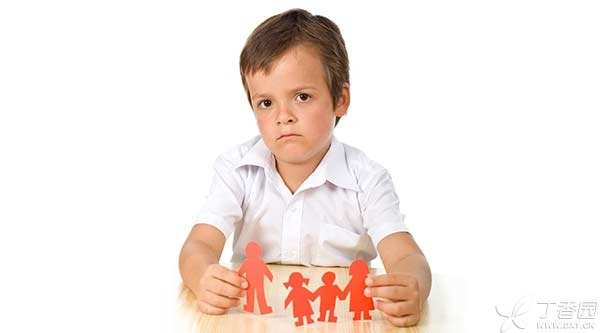
Divorce is a matter for two adults, but a broken marriage may have a profound impact on children.
However, both parents can relieve their children’s pressure in appropriate ways. How can we explain these situations to our children and help them deal with them? What are the mistakes you may make? Let’s talk about what divorced parents should do.
How told the children the news of the divorce?
It is best for both parents to tell their children about the divorce.
Honestly and simply state the facts and skip those unbearable details.
You can say: It is very difficult for your mother (or father) and I to get along any more, so we think we’d better live separately.
Make sure your child can understand that divorce is only a matter between two adults. You should remind your child repeatedly that it is not because of him that your parents divorced, and you two still love him.
Tell the child’s teacher about your divorce, and they can also watch and help you observe the child and know the situation of the child in time.
It is really not a good way to issue a divorce statement with great fanfare, tear off the fig leaf of the other party, and expose the dark history to the sun… even if the other party is really wrong.

First, don’t let children suppress their feelings
At first, children may be more interested in specific details:
Where will I live in the future? Do I need to change schools? Who will take me to interest classes in the future?
Make sure your child’s daily life is not affected as much as possible, or help your child set up a new schedule as soon as possible. Children will feel more secure when they know that what will happen next.
Soon, the reality of divorce will come on our faces:
- Young children: In the face of pressure, Possible [degenerative sex], Such as sucking milk or wetting the bed, Separation can also cause anxiety. Parents can try to help their children express their feelings in words. Older children: In the face of stress, there may be a series of complex emotions-anger, anxiety, grief… If the child’s anger turns inward, he may become depressed, silent, or counterproductive, making the child extroverted or causing behavioral problems. As parents, children should be encouraged to express their feelings as openly as possible.
Second, don’t let children get involved in parents’ disputes.
Respect for the relationship between a child and his predecessor can help the child better adapt to the divorce of his parents. Remember the following 6 [no]:
-
Don’t speak ill of the other half in front of the children.
-
Don’t force your child to choose which side to take.
-
Don’t use your child as your microphone or middleman.
-
Don’t argue or discuss the issue of supporting children in front of them.
-
Don’t spy on your child about your predecessor.
-
Don’t use your child as a weight to hurt your predecessor.

Don’t relax the principle of discipline
You may relax your parents’ principles and requirements because your child is sad, but this may cause more insecurity to your child.
Although children always try to test their parents’ bottom line and limits, persistence, organization and discipline can make children grow up healthily.
Therefore, how to ask children at home before should be consistent as far as possible after divorce.
If children take turns living in two families, they should also communicate well with their predecessors so that the discipline rules in the two families are consistent.
Don’t just reject consultation
Divorce may hurt you very much and turn to your child for comfort, but healing psychological trauma is not the task that your child should undertake. You should know that your child may be more vulnerable and need comfort than you are.
There are many ways to ask for help. You can join a divorce mutual aid group or seek help from a psychological consultant. If you can’t do it again, you can find relatives and friends to help you relieve yourself.
Don’t think this is a shameful thing.
Children may also benefit from counseling. Especially in the first year of divorce, children may have serious behavioral problems or look depressed and difficult to adapt to parents’ divorce.
Divorce has an impact on the whole family. Don’t neglect anyone.
Always put children first.
After divorce, most people don’t want to have anything to do with their predecessors, let alone interact with each other, but you have to understand that children need two parents. Everything must be child-first, the interests of the child must be kept in mind, and the guardianship and upbringing plan must be based on this principle, and some sacrifices must be made when necessary.
If it can be avoided, don’t engage in what custody war, which will have a serious long-term impact on children’s mental health. Not to mention occupying custody alone, it is beneficial to children’s growth to let children meet the other party regularly.
For children, it is most beneficial for children that parents can maintain a relatively normal relationship after divorce.
No matter how bad it is, don’t always denigrate the other party. You always denounce the other party’s various faults and make the child resent. It is not of any additional benefit to his life.
